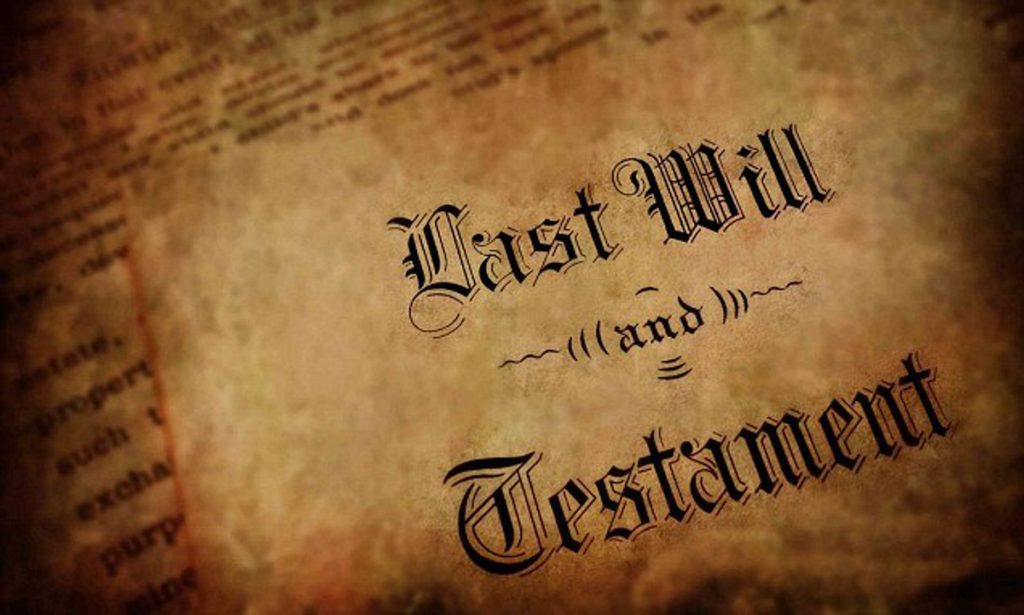Secret Trusts: What are they and how do they work?
Secret Trusts are not solely the product of Hollywood murder mysteries. While they are rare, they still do make an appearance in Estate claims. Most recently, they came before our Court of Appeal in Bergler v. Odenthal, 2020 BCCA 175
What is a “Secret Trust”?
Secret trusts arise when a testator or intestate person fails to comply with the legal requirements to make a will before dying but imposes an obligation on someone to hold property in trust for a third person. This is especially important where that property is land because the Law and Equity Act, requires any agreement concerning land to be in writing to be enforceable. An oral agreement to hold land for someone else would not meet this requirement. The rules of equity would intervene to enforce a secret trust to ensure that someone who is holding a piece of land under a secret trust could not rely on the requirement to have the transfer in writing to claim the land for themselves and breach the trust.
There are two essential features of this trust: communication and acceptance. Firstly, there must be a communication from the deceased to the person who is to hold the property and the person must accept the request to hold that property in trust for someone else. Essentially the deceased must tell person the property is to be dealt with in a specific way upon the happening of an event, and the person receiving the communication must accept the obligation.
Communication is critical. Acceptance does not have to be established as strictly. If the person receiving the property is silent, the court may take the view that acceptance is implied. The court’s reasoning is that if someone was received a request of such a serious nature they would be bound to say something if they rejected the idea that they should not enjoy the property themselves.
Additionally, secret trusts still must meet the three requirements of any trust, also known as the “three certainties”: the words making the trust must be imperative, the subject of the trust must be certain, and the object or person intended to take the benefit of the trust must be certain. In other words, it must be clear a person intends to make a trust, the property subject to the trust must be clear and the person that is to benefit from that trust must also be clear.
How does a secret trust play out in practice?
How did this play out in the Bergler case? In this case, the deceased was in the hospital suffering from cancer. She put off making her well until she felt better, but ultimately passed away before she could do so. While she was in the hospital, she told her common law spouse, Mr. Odenthal that she wanted her estate to go to her niece, Mrs. Bergler. Witnesses at the hospital testified the deceased told Mr. Odenthal to transfer her estate to her niece when he began a new relationship. Mr. Odenthal also testified the deceased told him that if he began a new relationship, the deceased’s estate was to go back to her family.
After her passing, a dispute arose between Mr. Odenthal and the deceased’s niece about what was to happen with the assets. Because she died without a will, section 20 of the Wills, Estates and Succession Act passed the estate to her common law spouse, Mr. Odenthal. Mr. Odenthal’s view was the deceased wanted him to keep her assets until he passed away and then give them to her family in his will. He subsequently started a new relationship with another women a year after the deceased’s passing and left the niece a portion of the estate in his will. The deceased’s niece took the position Mr. Odenthal was required to transfer the estate once he began his new relationship.
At trial, the judge concluded that although the Deceased did not use the wort “trust” explicitly in telling Mr. Odenthal what she wanted to happen to her estate, her instructions to him created a trust and he accepted that trust. By keeping the assets for himself after he began a new relationship he was in breach of the trust obligations. He was ordered to provide a share of the estate assets and repay monies taken from the estate. Shortly after, he appealed that decision.
At the court of appeal, the issue was whether or not Mr. Odenthal had satisfied the “acceptance” portion of the secret trust requirement. The court affirmed that acceptance can be inferred from silence because the law assumes that anyone who had received such a request would be bound to say something.
[29] With respect to the trustee’s acceptance in particular, I note again Professor Waters’ observation (supra at 288) that once the deceased’s communication of the trust obligations is established, acceptance can be “spelled out of the silence” of the devisee/trustee and that the law assumes that “any person having received a request of this nature would be bound to say something if he rejected the idea that he himself should not enjoy the property beneficially.” (At 288.) Similarly, Albert H. Oosterhoff, Robert Chambers and Mitchell McInnes, the editors of Oosterhoff on Trusts (9th ed., 2019) observe that “positive acceptance obviously will suffice, but so too will silent acquiescence”, citing Russell v. Jackson (1852) 68 E.R. 900 and Charlton v. Cipperly (1984) 1984 ABCA 221 (CanLII), 12 D.L.R. (4th) 582 (Alta. C.A.). In addition, the editors of Underhill and Hayton: Law Relating to Trusts and Trustees (18th ed., 2010) observe at §12.87 that “Acceptance by the recipient [of the communication of the deceased] is readily inferred once communication occurs unless he protests.” (My emphasis.) These authors cite Moss v. Cooper (1861) 70 E.R. 782 and Tee v. Ferris (1856) 69E.R. 819.
The appeal was dismissed. The reasons from the court indicate while “secret trusts” may be rare, they still apply in modern estate claims and can potentially save an estate from intestacy.




